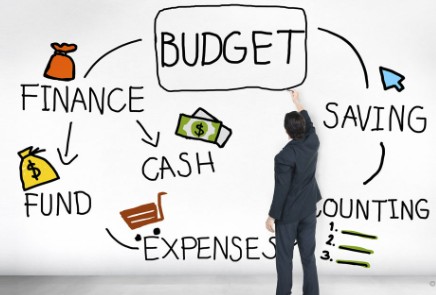Budgeting is the backbone of financial health and stability. Whether you’re trying to save for a dream vacation, pay off debt, or build long-term wealth, having a clear and realistic budget is essential. Yet, many people overlook this critical financial tool, often leading to overspending, stress, and missed opportunities. In this article, we’ll explore why budgeting is so important, how it empowers you to take control of your finances, and actionable steps to create a budget that works for you.
What Is Budgeting?
At its core, budgeting is the process of creating a plan to allocate your income toward expenses, savings, and investments. It’s a roadmap for your money, ensuring that every dollar has a purpose. Budgeting isn’t about restricting yourself from enjoying life; instead, it’s about making intentional decisions to prioritize what truly matters to you.
A budget provides clarity about your financial situation. It shows you where your money is going, how much you have left to spend, and what adjustments you can make to achieve your financial goals. Without a budget, it’s easy to lose track of your spending, accumulate debt, and feel out of control financially.
Why Is Budgeting Important?
1. Gives You Financial Control
A budget puts you in charge of your money, rather than letting your money control you. By understanding your income and expenses, you can make informed decisions about where to cut back, how much to save, and what you can afford to spend. This sense of control reduces financial stress and helps you feel more confident about your financial future.
2. Helps You Achieve Financial Goals
Whether you’re saving for a down payment on a house, paying off student loans, or building an emergency fund, a budget is the key to reaching your goals. It allows you to set specific, measurable targets and allocate resources accordingly. For example, if you want to save $10,000 for a vacation in two years, a budget can help you determine how much to set aside each month to reach that goal.
3. Prevents Overspending
One of the biggest pitfalls of not having a budget is overspending. Without a plan, it’s easy to spend more than you earn, leading to debt and financial stress. A budget helps you live within your means by showing you exactly how much you can afford to spend in each category, such as groceries, entertainment, and transportation.
4. Prepares You for Emergencies
Unexpected expenses, such as medical bills or car repairs, can derail your finances if you’re not prepared. Budgeting ensures that you set aside money for emergencies, giving you a financial safety net to handle life’s surprises. Having an emergency fund also prevents you from relying on credit cards or loans during tough times.
5. Encourages Better Spending Habits
When you track your expenses through a budget, you become more aware of your spending habits. This awareness can help you identify areas where you’re overspending and make adjustments to align with your priorities. For example, you might realize you’re spending too much on dining out and decide to cook more meals at home to save money.
6. Reduces Financial Stress
Financial worries are a major source of stress for many people. A well-thought-out budget can alleviate this stress by providing a clear plan for managing your money. Knowing that you have a plan in place to cover your expenses, save for the future, and pay off debt brings peace of mind and a sense of security.
How to Create a Budget That Works for You
1. Assess Your Income and Expenses
Start by calculating your total monthly income, including your salary, side hustles, and any other sources of income. Next, track your expenses for at least one month to get a clear picture of where your money is going. Categorize your expenses into fixed costs (e.g., rent, utilities, insurance) and variable costs (e.g., groceries, entertainment, dining out).
2. Set Financial Goals
Define your short-term and long-term financial goals. Short-term goals might include paying off a credit card or saving for a vacation, while long-term goals could involve building a retirement fund or buying a home. Having clear goals will guide your budgeting decisions and keep you motivated.
3. Create Spending Categories
Divide your expenses into categories, such as housing, transportation, food, entertainment, savings, and debt repayment. Assign a specific amount to each category based on your income and financial goals. A popular guideline is the 50/30/20 rule: allocate 50% of your income to necessities, 30% to wants, and 20% to savings and debt repayment.
4. Track and Adjust Your Spending
Consistency is key when it comes to budgeting. Use tools like apps, spreadsheets, or even a notebook to track your spending regularly. Compare your actual expenses to your budget and make adjustments as needed. If you overspend in one category, compensate by reducing spending in another area.
5. Build an Emergency Fund
Make it a priority to save for emergencies. Aim to set aside at least three to six months’ worth of living expenses in a separate account. Start small if needed—saving even $20 a week adds up over time.
6. Automate Your Savings and Bills
Automation makes budgeting easier and helps you stay on track. Set up automatic transfers to your savings account and schedule payments for bills to avoid late fees. By automating your finances, you’re less likely to spend money that should go toward savings or debt repayment.
7. Review Your Budget Regularly
Your financial situation and goals may change over time, so it’s important to review your budget periodically. Life events like a new job, marriage, or a major purchase may require adjustments. Regularly revisiting your budget ensures it remains aligned with your priorities and keeps you on track.
Conclusion
Budgeting is a powerful tool that empowers you to take control of your finances and achieve your goals. It’s not about restricting your spending but about making intentional choices that align with your priorities and values. By creating and sticking to a budget, you can reduce financial stress, prevent overspending, and build a secure financial future. The sooner you start budgeting, the sooner you’ll experience the benefits of financial freedom and peace of mind. Take the first step today and watch as your financial life transforms for the better.




